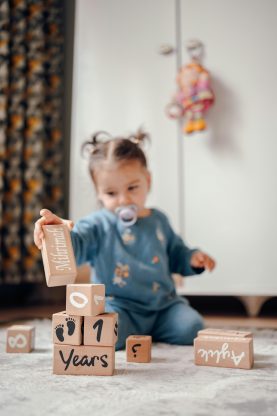Table of Contents
Screening Process
When looking for a babysitter, it is important to conduct a thorough screening process. This may include background checks, interviews, and reviewing the candidate’s qualifications. It is crucial to gather as much information as possible about the potential babysitter to ensure they are trustworthy and responsible.
On-Demand Childcare in Your Neighborhood
Book a Sitter
References
One of the best ways to gauge a babysitter’s reliability is by checking their references. Reach out to previous employers, coworkers, or other parents who have hired the babysitter in the past. Ask about their experience working with the babysitter and if they would recommend them for the job.
First Aid/CPR Certification
It is essential for a babysitter to be trained in first aid and CPR. Accidents can happen at any time, and having a babysitter who is prepared to handle emergencies can give you peace of mind. Make sure to verify that the babysitter is certified in first aid and CPR before leaving them in charge of your children.
Experience and Training
When hiring a babysitter, consider their level of experience and any relevant training they may have. Ask about their previous childcare experience, including the ages of children they have cared for and any special needs they have experience with.
A babysitter with a solid background in childcare is more likely to handle various situations that may arise.
Trust your Instincts
Above all, trust your instincts when hiring a babysitter. If something doesn’t feel right or you have any doubts about the candidate, it is best to move on to another potential babysitter. Your gut feeling is often a reliable indicator of whether a babysitter is the right fit for your family.

Communication
It is crucial to maintain open communication with your babysitter. Provide them with clear instructions on your expectations, rules, and any specific details regarding your children. Encourage them to ask questions and keep you updated on how things are going while you are away.
Emergency Plan
Make sure your babysitter is well-versed in your family’s emergency plan. Provide them with important contact numbers, such as yours, a neighbor, and poison control. Discuss what to do in case of an emergency and ensure that the babysitter knows the location of first aid supplies in your home.
Supervision Guidelines
Clearly outline your supervision guidelines for the babysitter. Let them know what areas of the house are off-limits, what activities are allowed, and any rules regarding screen time, discipline, or bedtime routines. Having clear guidelines in place helps the babysitter understand your expectations and ensures that your children are safe and well-cared for.
Check-Ins
While you are away, be sure to check in with your babysitter periodically. This can be done via phone call, text message, or video chat. Inquire about how things are going, if there have been any issues, and if your children are behaving well. Regular check-ins help you stay informed and address any concerns promptly.
Emergency Contact
Provide your babysitter with a list of emergency contacts, including your contact information, a neighbor or nearby family member, and your child’s pediatrician. Make sure the babysitter knows who to call in case of an emergency and has access to important phone numbers at all times.
Conclusion
Hiring a babysitter can be a stressful process, but by taking these safety measures, you can ensure that your children are in good hands. Remember to conduct a thorough screening process, check references, verify first aid/CPR certification, consider experience and training, and trust your instincts when choosing a babysitter. By following these guidelines, you can hire a babysitter who will provide safe and nurturing care for your children.










